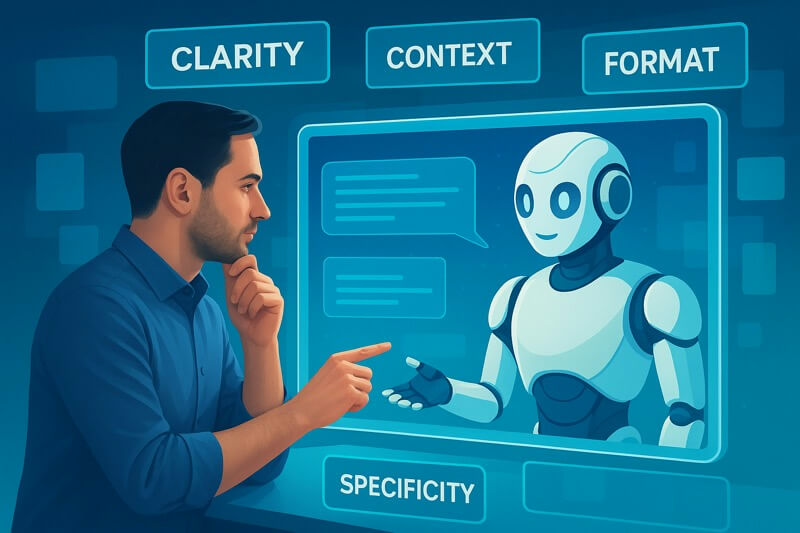The Rise of AI Agents for Business: Transforming Work in 2025 and Beyond
In today’s rapidly evolving digital landscape, one trend stands out as particularly transformative: the integration of AI agents for business operations. According to Microsoft’s 2025 Work Trend Index, we are witnessing the birth of what they call “Frontier Firms,” organizations that are embracing AI agents to fundamentally reshape how work gets done.
What Are AI Agents for Business?
AI agents for business are intelligent software systems that can perform specific tasks with minimal human intervention. Unlike basic automation tools, these agents can reason, make decisions, and continuously learn from interactions. They represent the next evolution in business technology, moving beyond simple rule-based automation to intelligent systems that can handle complex workflows.
At AgenticPress, we define AI agents as digital workers that augment human capabilities, allowing teams to accomplish more with the same resources. These agents can handle everything from data processing and content creation to customer service and strategic research.
The Intelligence-on-Tap Revolution
Microsoft’s research reveals a fundamental shift in how businesses access and utilize intelligence. For decades, intelligence was a scarce resource, limited by human capacity. Now, AI agents have made intelligence “abundant, affordable, and available on demand,” essentially turning it into a utility that any business can tap into.
This shift comes at a critical time. According to the Work Trend Index, 82% of business leaders view 2025 as a pivotal year for rethinking core strategies and operations related to AI. Over half of leaders say employee productivity needs to increase, while 80% of workers report lacking sufficient time and energy. AI agents offer a solution to this capacity gap.
The Human-Agent Team: Beyond Traditional Org Charts
The most revolutionary aspect of AI agents for business is how they’re reshaping organizational structures. The traditional org chart built around siloed departments is giving way to what Microsoft calls a dynamic “Work Chart.” In this model, hybrid teams of humans and AI agents form and disband around projects and goals rather than fixed functions.
This fluid approach allows businesses to access specialized expertise on demand. For example, an AI-first ad agency found they “don’t need a strategist on every brief” because every employee has AI-based access to that expertise. By deploying AI agents strategically, even small teams can punch above their weight, handling work that would have previously required much larger departments.
Every Employee an “Agent Boss”
As AI agents become more integrated into business operations, a new skill is emerging and becoming essential for virtually every role: effectively managing AI. Microsoft’s report introduces the concept of the “agent boss,” someone who can build, delegate to, and manage AI agents as part of their job.
This trend is quickly gaining traction, with 41% of leaders saying their teams will train AI agents, and 36% predict they will manage agents within the next five years. AI literacy has become the most in-demand skill for 2025, with Microsoft bluntly stating, “AI aptitude is the new productivity.”
The benefits for businesses embracing this shift are substantial. Employees at frontier firms are far more likely to say their company is thriving (71% vs. just 37% globally). They also report having significantly more bandwidth, with 55% of workers at frontier firms saying they could take on more work if needed, compared to only 20% of average workers.
Real-World Applications of AI Agents for Business
Let’s explore how companies are implementing AI agents for business to transform their operations:
Automating Routine Tasks
Workers today spend 60% of their day on communications (email, meetings, chats), leaving only 40% for deep, creative, or strategic work. AI agents are stepping in to handle these routine tasks, freeing humans to focus on higher-value activities.
For example, one company mentioned in Microsoft’s report reduced a coding task from 8 to 2 hours and slashed a chatbot development timeline from 3 months to 10 days using AI assistance. These 4- 5x productivity improvements are becoming more common as businesses effectively deploy AI agents.
Decision-Making and Problem-Solving
AI agents can analyze scenarios, process data, and even make preliminary decisions at a scale and speed humans cannot match. This augmented decision-making is changing roles throughout organizations, from customer support to finance.
For instance, in customer service, an AI agent might handle common inquiries end-to-end, only escalating novel or sensitive cases to humans. AI can optimize routes and inventory management in logistics, while human workers handle exceptions and provide final approval.
Specialized Business Roles
The integration of agentic AI is creating entirely new career paths. According to the 2025 Work Trend Index, 78% of leaders are considering creating AI-specific roles, a number that increases to 95% among frontier companies. Top emerging roles include:
- AI Trainer (32% of leaders plan to hire)
- AI Data Specialist (32%)
- AI Security Specialist (31%)
These specialized roles help businesses maximize the value of their AI investments and ensure responsible implementation.
How to Implement AI Agents in Your Business
For businesses looking to harness the power of AI agents, here are key strategies based on Microsoft’s research:
1. Start With High-Value Use Cases
Begin by identifying areas where AI agents can deliver immediate value. Look for repetitive, time-consuming tasks that require processing large amounts of data. According to the Work Trend Index, customer service, marketing, and product development are the top areas seeing accelerated AI investment.
2. Focus on Human-Agent Collaboration
The most successful implementations of AI agents for business focus on collaboration rather than replacement. As Daniel Susskind notes in the report, human work will persist in areas where full automation is less efficient, human preferences demand a personal touch, or moral and legal accountability is crucial.
When asked why they would use AI instead of a human colleague, workers’ top answers were 24/7 availability (42%), speed and quality of output (30%), and endless idea generation (28%). This suggests that employees see AI as complementary to human capabilities rather than a replacement.
3. Invest in AI Literacy
With AI literacy emerging as the most in-demand skill in 2025, businesses must prioritize training and education to stay competitive. 47% of leaders list upskilling existing employees as a top workforce strategy for the next year, reflecting the importance of developing AI skills within their organizations.
Implementing training programs that help employees become effective “agent bosses” will be crucial for success. This includes teaching skills like prompt engineering, AI oversight, and effective delegation to AI systems.
4. Rethink Processes, Not Just Tools
Simply adding AI agents to existing workflows won’t deliver transformative results. As the Work Trend Index notes, “Work Charts” represent a fundamental rethinking of how work gets done. This requires leaders to reimagine processes from the ground up, considering how human-agent teams can work together most effectively.
Harvard Business School professor Karim Lakhani suggests that organizations may need to create “Intelligence Resources” departments, similar to HR or IT, dedicated to managing the human-AI collaboration and maximizing its value.
The Future of AI Agents for Business
As we look ahead, several trends will shape the evolution of AI agents for business:
1. Increasing Autonomy
AI agents will become increasingly capable of operating independently, handling more complex tasks with less human oversight. This will further free human workers to focus on creative, strategic work that adds the most value.
2. Cross-Functional Integration
Rather than operating in silos, AI agents will increasingly work across traditional departmental boundaries. This will enable more holistic approaches to business challenges and facilitate better knowledge sharing throughout organizations.
3. Ethical and Responsible Implementation
As AI agents take on more responsibilities, ensuring ethical implementation will become increasingly important. This includes addressing bias, transparency, and accountability issues in AI systems.
Conclusion: The Age of the Frontier Firm
The 2025 Work Trend Index clearly shows that we’re entering a new era of business, one defined by the strategic integration of AI agents. Companies that embrace this shift, becoming what Microsoft calls “Frontier Firms,” will enjoy significant advantages in productivity, employee satisfaction, and innovation.
The message from Microsoft’s research is clear: “From the boardroom to the frontline, every worker will need to think like the CEO of an agent-powered startup.” Businesses that develop this mindset and build the necessary skills and systems will thrive in the age of AI agents for business.
As you consider how AI agents might transform your organization, remember that the goal isn’t to replace humans but to elevate human work, remove tedious tasks, unlock creative potential, and democratize access to intelligence. By thoughtfully implementing AI agents for business, you can position your company as a Frontier Firm, ready to lead in this new era of work.
Are you ready to transform your business with AI agents? Learn more about our AI agent solutions and how they can help your organization become a Frontier Firm.



